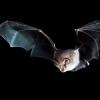Scientists have identified genomic signatures in women developing the most common type of breast cancer that can be associated with long-term survival.

A team from NUI Galway analysed the genomes of breast cancer patients to look for associations with survival rates using advanced statistical techniques.
Early detection by national screening programmes and timely treatment for patients diagnosed with “luminal” types of breast cancer have resulted in excellent prognoses, with survival rates of over 80% within five years of treatment.
The challenge of long-term survival, however, is not as well understood and studies have shown that more than half of all recurrences for luminal breast cancers take place after this time point.
The team calculated the level of genome instability across 2000 patients, then used statistical modelling to identify distinct long-term survival outcomes. This enabled them to confirm the significantly worse prognoses for luminal A patients suffering from the most extreme levels of genome instability in their tumour biopsies.




